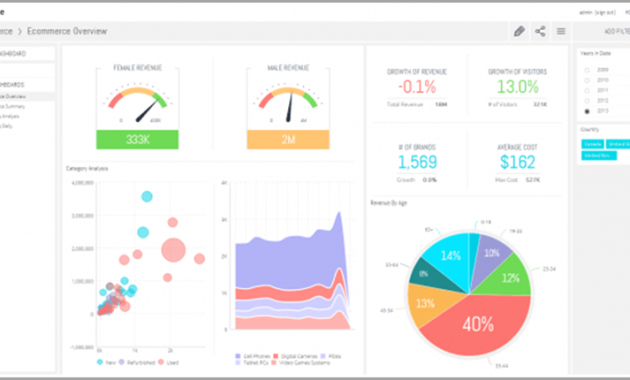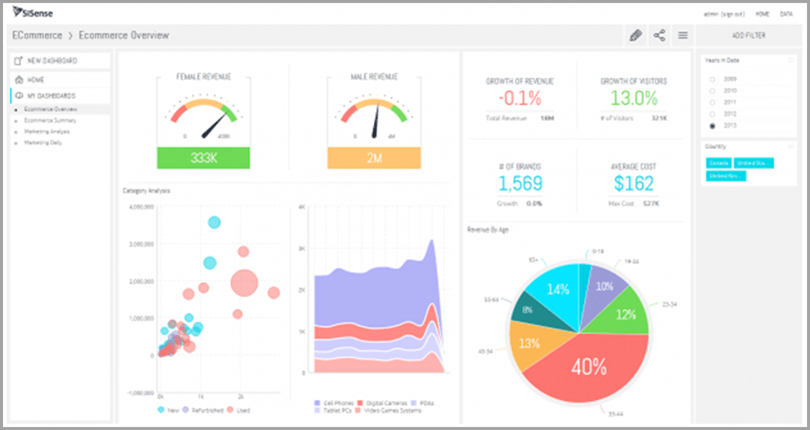
Business Intelligence Software That Tells the Whole Story: Unveiling Data Insights for Smarter Decisions
In today’s data-driven world, businesses are drowning in information. The challenge isn’t just collecting data; it’s understanding it. This is where Business Intelligence (BI) software steps in. It’s more than just a tool. It’s a strategic asset. It transforms raw data into actionable insights. It empowers organizations to make informed decisions. This article delves into the world of Business Intelligence software that tells the whole story. We will explore its capabilities, benefits, and how it can revolutionize your business.
Understanding the Core of Business Intelligence
At its heart, BI software is a technology-driven process. It analyzes data to provide business insights. It helps businesses understand past performance. It also helps them predict future trends. This is achieved through various functionalities. These include data mining, online analytical processing (OLAP), and reporting.
Business Intelligence software compiles data from various sources. These sources include databases, spreadsheets, and cloud applications. The software then processes this data. It presents it in an easy-to-understand format. This format often includes dashboards, reports, and visualizations. This allows users to quickly grasp complex information.
Key Features of Effective Business Intelligence Software
Not all Business Intelligence software is created equal. The best solutions offer a range of features. These features are crucial for providing a complete picture. Here are some essential elements:
- Data Integration: The ability to connect to various data sources. This includes both internal and external data.
- Data Visualization: Tools to create charts, graphs, and dashboards. This makes data easier to understand.
- Reporting and Analytics: Features to generate reports and perform in-depth analysis.
- Data Mining: Techniques to discover patterns and trends in data.
- OLAP (Online Analytical Processing): Capabilities for multi-dimensional data analysis.
- Mobile Access: The ability to access data and reports on mobile devices.
- User-Friendly Interface: An intuitive interface that is easy to navigate. This is for users of all technical skill levels.
Benefits of Implementing Business Intelligence Software
The advantages of using Business Intelligence software are numerous. It can transform how a business operates. Here are some key benefits:
- Improved Decision-Making: BI provides data-backed insights. This leads to more informed decisions.
- Increased Efficiency: Automation and streamlined reporting save time and resources.
- Enhanced Performance: BI helps identify areas for improvement. It also tracks progress toward goals.
- Better Customer Understanding: Analysis of customer data provides valuable insights. This leads to improved customer service.
- Competitive Advantage: Data-driven insights help businesses stay ahead of the competition.
- Cost Reduction: Identify and eliminate inefficiencies. This leads to significant cost savings.
How Business Intelligence Software Tells the Whole Story
Traditional reporting often provides a fragmented view. Business Intelligence software, however, aims to paint a complete picture. It integrates data from various sources. It then presents it in a unified format. This allows users to see the relationships between different data points. This is crucial for understanding the full context of the business. This holistic approach enables more effective decision-making.
Business Intelligence software allows users to drill down into the details. This helps to uncover underlying causes. It provides a deeper understanding of the data. Users can explore different scenarios. They can also test various strategies. This helps to identify the most effective solutions. This is a key differentiator for Business Intelligence software.
Choosing the Right Business Intelligence Software
Selecting the right Business Intelligence software is vital. It depends on your specific needs. Consider these factors when making your decision:
- Your Business Needs: Assess your current data sources. Determine your reporting requirements.
- Scalability: Choose a solution that can grow with your business.
- User-Friendliness: Ensure the software is easy to use for all users.
- Integration Capabilities: Check compatibility with your existing systems.
- Cost: Evaluate the total cost of ownership. Consider licensing, implementation, and training costs.
- Vendor Reputation: Research the vendor’s reputation and customer support.
Real-World Examples of Business Intelligence in Action
Many businesses are already leveraging the power of Business Intelligence software. Here are a few examples:
- Retail: Retailers use BI to track sales trends. They also optimize inventory and personalize marketing campaigns.
- Healthcare: Healthcare providers use BI to analyze patient data. They then improve patient outcomes and streamline operations.
- Finance: Financial institutions use BI to detect fraud. They also manage risk and improve financial performance.
- Manufacturing: Manufacturers use BI to optimize production processes. They reduce waste and improve efficiency.
These examples demonstrate the versatility of Business Intelligence software. It can be applied across various industries. It drives significant improvements in performance.
The Future of Business Intelligence
The future of Business Intelligence software is bright. Advancements in technology will continue to shape the landscape. Key trends include:
- Artificial Intelligence (AI) and Machine Learning (ML): AI and ML are being integrated into BI tools. This automates analysis and provides predictive insights.
- Cloud-Based BI: Cloud-based solutions are becoming increasingly popular. They offer flexibility and scalability.
- Data Democratization: The focus is on making data accessible to all users. This is regardless of their technical skills.
- Self-Service BI: Users can create their reports and dashboards. They can do this without relying on IT.
Conclusion: The Power of Data-Driven Insights
Business Intelligence software that tells the whole story is more than a trend. It is a necessity for businesses. It empowers organizations to make informed decisions. It provides a competitive advantage. By implementing the right BI solution, businesses can unlock the full potential of their data. They can achieve greater success. They can also thrive in today’s dynamic market.
Investing in Business Intelligence software is an investment in your future. It’s about understanding your business. It’s about making smarter decisions. It’s about telling the whole story with data. Embrace the power of data. Transform your business. [See also: Related Article Titles]

